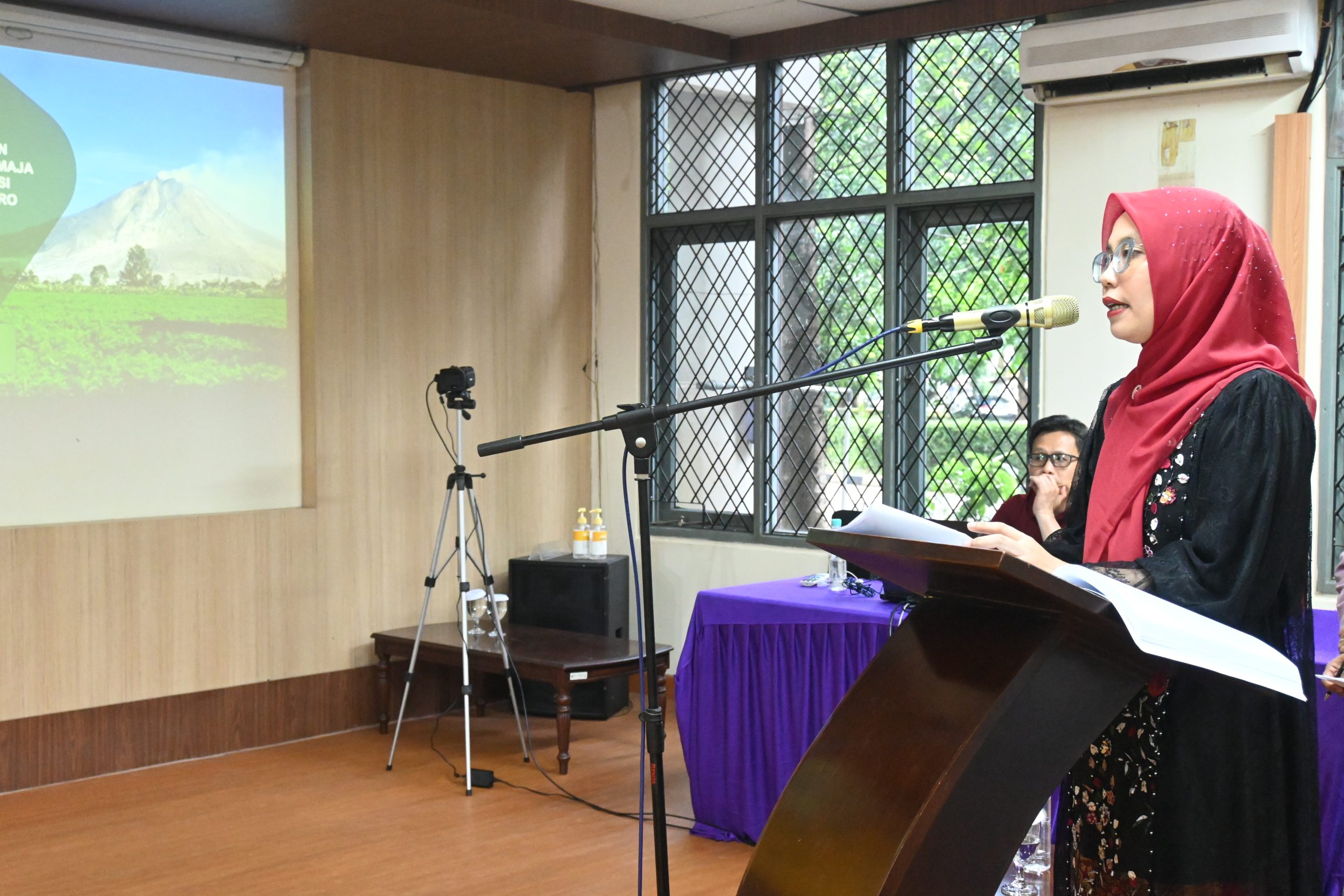On Tuesday, January 7, 2025, the Doctoral Program in Epidemiology at the Faculty of Public Health (FPH) of the Universitas Indonesia (UI) held an open Doctoral Promotion Session in the Doctoral Promotion Room of Building G at FPH UI. During this session, Sri Novita Lubis, the doctoral candidate, defended her dissertation titled “The Relationship Between Social Capital and Health-Related Quality of Life Among Adolescents Affected by the Sinabung Volcano Eruption in Karo Regency, North Sumatra Province.” The session was chaired by Prof. dr. Mondastri Korib Sudaryo, M.S., D.Sc., with Promotor Prof. Dr. Sudarto Ronoatmodjo, S.K.M., M.Sc., and Co-Promotors Prof. Dr. Dra. Evi Martha, M.Kes., and Prof. Dr. Besral, S.K.M., M.Sc. The examination committee was chaired by Prof. Dr. dr. Ratna Djuwita Hatma, M.P.H., with members Prof. Drs. Isbandi Rukminto Adi, M.Kes., Ph.D.; Dr. Drs. R. Kintoko Rochadi, M.K.M.; Soewarta Kosen, M.D., M.P.H., Dr.PH.; and Dr. Ajeng Tias Endarti, S.K.M., M.CommHealth.
Sri Novita Lubis explained that Indonesia is one of the countries at high risk for volcanic disasters due to its location along the Pacific Ring of Fire. Active volcanoes are spread across Sumatra, Java, Sulawesi, and Lesser Sunda Islands. Mount Sinabung is one of the active volcanoes in Indonesia, which erupted on August 29, 2010, after being inactive since 1912. Adolescents are one of the population groups at high risk during a disaster. In Indonesia, 17% of adolescents are at risk for the survival and overall development during natural disasters. These disasters affect the health-related quality of life of adolescents.
There are resources within the community that can be utilized to improve the health-related quality of life of adolescents, namely social capital. Social capital refers to the characteristics of social organizations, such as networks, norms, and trust, that facilitate coordination and cooperation for mutual benefit. Therefore, this research was conducted to examine the relationship between social capital and health-related quality of life among adolescents affected by the Mount Sinabung eruption in Karo Regency, North Sumatra Province.
The study employed both quantitative and qualitative approaches through three stages. The first stage was a qualitative study that provided secondary supporting data for the main quantitative research conducted in the second stage. The third stage was another qualitative study that explained the findings from the main quantitative study. The research was conducted in areas affected by the Mount Sinabung eruption in Karo Regency, including government relocation sites, self-relocated areas, and villages that were not relocated. The health-related quality of life of adolescents was measured using the Pediatric Quality of Life InventoryTM (PedsQLTM) version 4.0 questionnaire. The study involved 304 adolescents aged 10-18 years who were affected by the Mount Sinabung eruption and lived in the three study locations.
The results of Sri Novita Lubis’ study found that the proportion of adolescents with poor health-related quality of life in the affected areas was 45.4%. It was found that individual social capital had a significant relationship with health-related quality of life among adolescents affected by the Mount Sinabung eruption after controlling for factors such as age, gender, education, socioeconomic status, type of relocation, and chronic diseases (PR=2.224; 95% CI 1.424-2.473). This risk estimation varied based on age group, education level, and type of relocation. Qualitative findings indicated that individual social capital was associated with poor health-related quality of life, including feelings of insecurity from the eruption among adolescents living in self-relocated areas, and the need for a sense of security from criminal acts. Unpleasant experiences while staying in temporary shelters and weakened social ties among community members after relocating were also noted. The low participation of adolescents in organizations due to limited access to transportation, and the burden of obligations on adolescents, especially in non-relocated villages, were identified. Community social capital was not found to be a risk factor for the health-related quality of life of adolescents after controlling for the type of relocation and availability of healthcare services (PR=1.017; 95% CI 0.601-1.721). However, qualitatively, community social capital played a role in the health-related quality of life of adolescents, such as the existence of economic organizations like cooperatives used by the community to fund adolescent education. Public spaces, like sports fields and “jambur” (a traditional Karo building in North Sumatra that functions as a multipurpose hall), were also used by adolescents in government relocation areas and non-relocated villages to socialize with peers and local communities.
Based on the research findings, Sri Novita Lubis recommended that local governments strengthen social capital at both the individual and community levels to improve the health-related quality of life of adolescents affected by disasters. She also suggested that the Regional Disaster Management Agency (BPBD) and the Karo Health Office should implement interventions to improve the quality of life of adolescents based on age groups and types of relocation. Future researchers are encouraged to conduct longitudinal studies to track changes in the health-related quality of life of adolescents affected by volcanic eruptions and how community social capital influences these changes.
Based on her dissertation, Sri Novita Lubis was awarded the title of Doctor in Epidemiology with excellent academic distinction. She became the 4th Epidemiology Ph.D. graduate in 2025, the 120th Epidemiology Ph.D. graduate, and the 442nd Ph.D. graduate from FPH UI. (prom)

